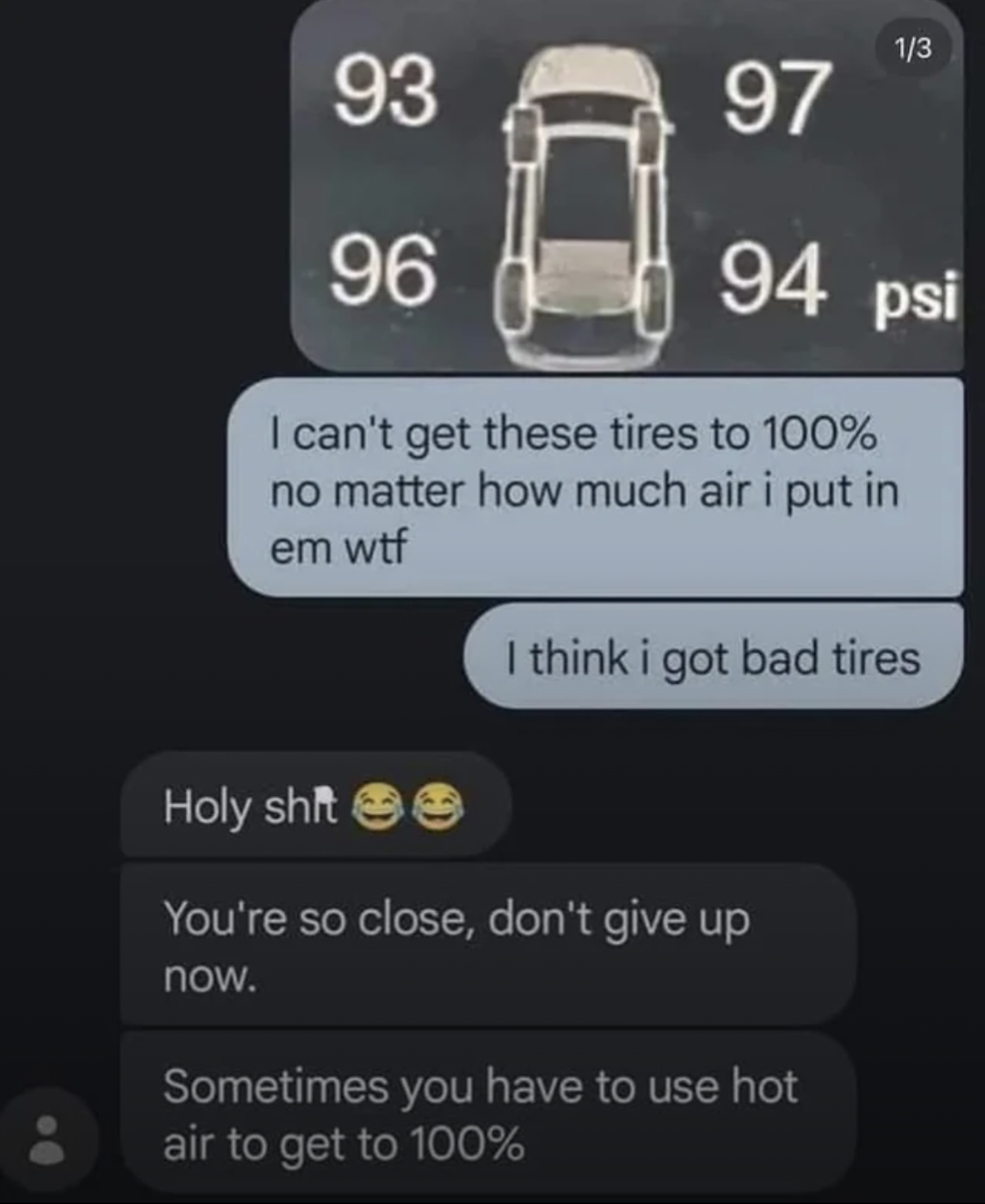this post was submitted on 20 Sep 2024
708 points (97.2% liked)
Funny: Home of the Haha
5680 readers
915 users here now
Welcome to /c/funny, a place for all your humorous and amusing content.
Looking for mods! Send an application to Stamets!
Our Rules:
-
Keep it civil. We're all people here. Be respectful to one another.
-
No sexism, racism, homophobia, transphobia or any other flavor of bigotry. I should not need to explain this one.
-
Try not to repost anything posted within the past month. Beyond that, go for it. Not everyone is on every site all the time.
Other Communities:
-
/c/[email protected] - Star Trek chat, memes and shitposts
-
/c/[email protected] - General memes
founded 1 year ago
MODERATORS
you are viewing a single comment's thread
view the rest of the comments
view the rest of the comments

Yes fuel economy. Energy expended per distance traveled or power needed to maintain a given speed. Just the fuel in this case is burned by your own body.
At world class levels, a few watts here and there will make a big difference by the end of a race.
Aah, gotcha. I had thought that
was in reference to this part at the end of the parent comment:
and I haven't seen anything to contradict all the previous literature on under-inflated automobile tires being worse for fuel economy.
Yeah it’s because the theory has been that high pressure decreases tire deformation and this is more efficient. This is where the wisdom of under inflated tires become less efficient. However lower pressure (like 80-90 psi) allows bicycle tires to absorb road imperfections and vibrations which actually ends up slightly more efficient. But if you go too low efficiency will be negatively affected.
Airplane tires actually have very high pressures to prevent hydroplaning, which is more important than ride quality or fuel efficiency for them.
Also planes have to land, and the impact on the tires is like hitting a pothole. You don't want the tires to touch rim at ~200 MPH on a many-million-dollar vehicle